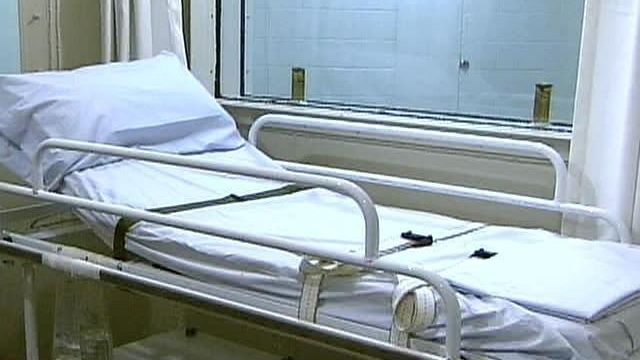Court: Physicians can take part in executions
The state Supreme Court ruled Friday that the N.C. Medical Board cannot punish physicians who take part in executions.
Posted — UpdatedThe North Carolina Medical Board adopted a policy in January 2007 that taking part in an execution would violate a physician's code of ethics and would subject a doctor to having his or her medical license revoked.
State law requires a physician's presence at all executions, and the Medical Board's decree effectively put executions on hold in North Carolina because the Department of Correction couldn't find a physician willing to put his or her license on the line and go to a scheduled execution.
The last execution carried out in North Carolina occurred in August 2006. At least five scheduled executions have been put on hold since then. There are 163 inmates on death row at Central Prison.
A Wake County judge ruled two years ago that the Medical Board's policy overstepped its authority and that state law takes precedence, and the board appealed that ruling.
In a 4-3 decision that broke along gender lines, the court upheld the judge's ruling.
"We hold that (state law), by its plain language, envisions physician participation in executions in some professional capacity," Justice Edward Thomas Brady wrote for the majority. "(The Medical Board's) position statement exceeds its authority ... because the statement directly contravenes the specific requirement of physician presence."
The case turned on how the judges defined a physician's presence at an execution, as spelled out in state law, and Justice Robin Hudson wrote in the dissenting opinion that the court's majority defined it too broadly.
"The position statement is a valid exercise of (the Medical Board's) statutory authority. Any change in that authority – which is the practical effect of the majority opinion – is a matter for the General Assembly which granted it, not for the courts," Hudson wrote.
Medical Board officials said they disagreed with the decision and were disappointed by it.
“The Medical Board believes that the role of the physician is to end suffering and to preserve life. This board has taken the position that active physician participation in executions runs counter to the core values of medicine. That position has not changed," board President Dr. George Saunders said.
Raleigh physician Dr. Charles Van Der Horst said he has no plans to take part in an execution, regardless of the court's ruling.
"The Supreme Court, the Department of Correction, the attorney general, the governor, the state legislature, by abdicating their responsibility, are forcing physicians to commit murder," Van Der Horst said. "If the legal establishment wants to execute people, let them do it themselves and leave us out of it."
Correction Secretary Alvin Keller declined to comment on the ruling, and a spokeswoman for Gov. Beverly Perdue said the governor would continue to monitor the situation surrounding the state's death penalty.
"(The) ruling by the state Supreme Court offers important guidance to the state Medical Board and the Department of Correction on how to proceed with executions," spokeswoman Chrissy Pearson said. "Gov. Perdue continues to support the death penalty."
The state also faces a lawsuit from death-row inmates over the execution protocol approved by the Council of State, which also has produced a de facto moratorium on capital punishment in the state.
• Credits
Copyright 2024 by Capitol Broadcasting Company. All rights reserved. This material may not be published, broadcast, rewritten or redistributed.





